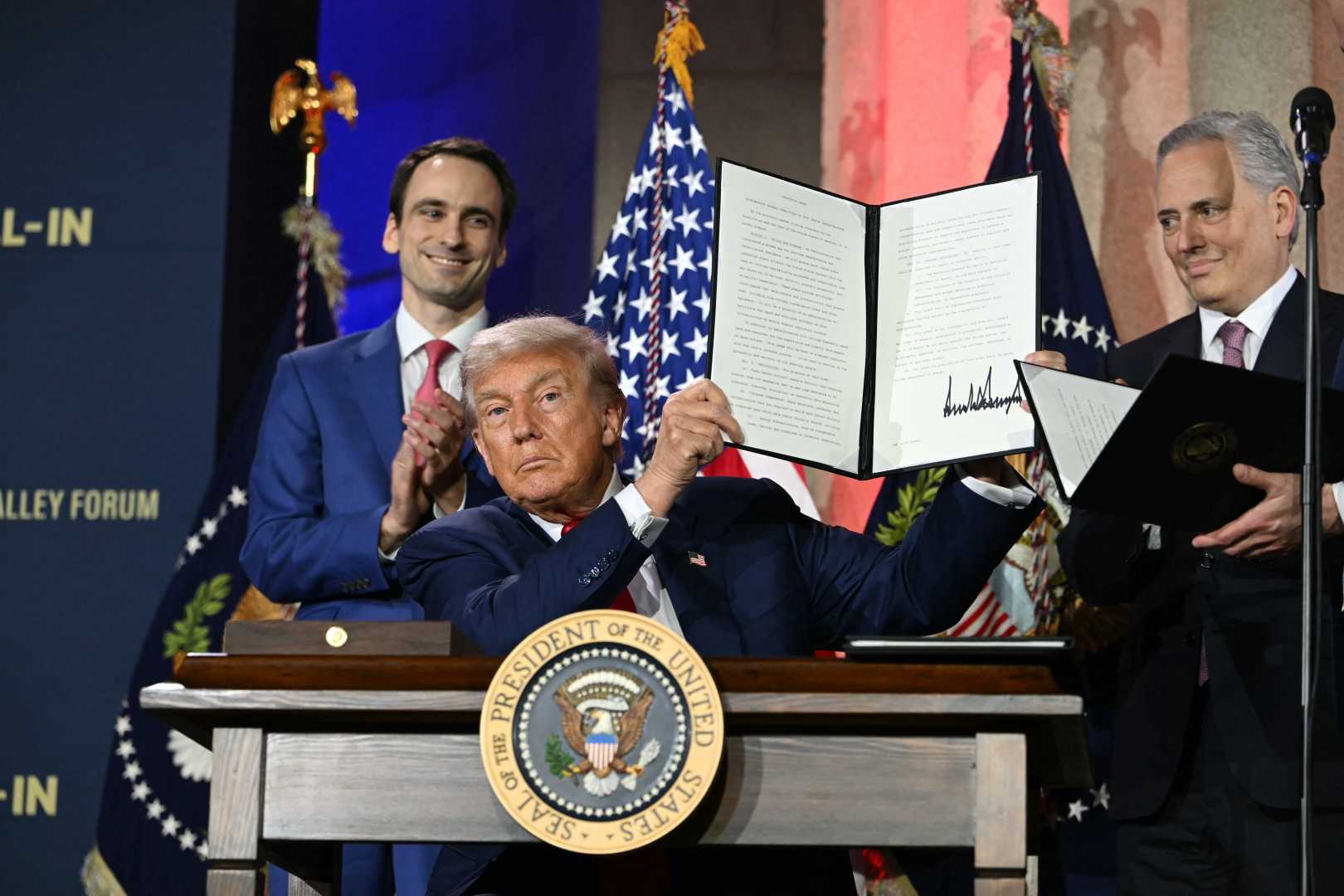Business
Trump’s New AI Order Aims to Prevent ‘Woke’ Technology

Washington, D.C. — President Donald Trump announced a sweeping new executive order on artificial intelligence (AI) aimed at countering competition from China and promoting American values. The order, signed on July 23, 2025, requires tech companies seeking federal contracts to prove that their AI products are not ‘woke.’
This directive comes amid increasing use of AI technologies in government settings, with tools like Google‘s Gemini and Microsoft‘s Copilot commonly employed for various tasks. Under this new order, the Trump administration aims to limit perceived ideological biases in AI systems, a move critics liken to China’s strategy in controlling technology.
Supporters of the order argue that it will promote a more ‘truth-seeking’ form of AI, while opponents, including civil rights advocate Alejandra Montoya-Boyer, express concerns over the implications for diversity, equity, and inclusion (DEI) initiatives within tech products. ‘There’s AI technology that discriminates and then there’s AI technology that actually works for all people,’ she stated.
Former Biden aide Jim Secreto highlighted the challenges tech companies face in complying with the order due to the reflective nature of AI language models. ‘Large language models reflect the data they’re trained on, including all the contradictions and biases in human language,’ he said.
Trump’s order is reportedly influenced by prominent Silicon Valley venture capitalists and aims to limit the incorporation of ‘destructive’ ideologies into AI models. The administration plans to use federal contracts as leverage to encourage self-censorship among tech companies to align with its vision.
While some companies have praised Trump’s broader AI initiatives, responses to the specifics of the anti-woke order have been muted. OpenAI indicated it is assessing the requirements, while companies like Microsoft and Anthropic have yet to issue public statements on the directive.
This order’s implications highlight ongoing tensions in the tech industry as it navigates between innovation and regulation, reflecting a culture war dynamic reshaping the landscape of AI development.












